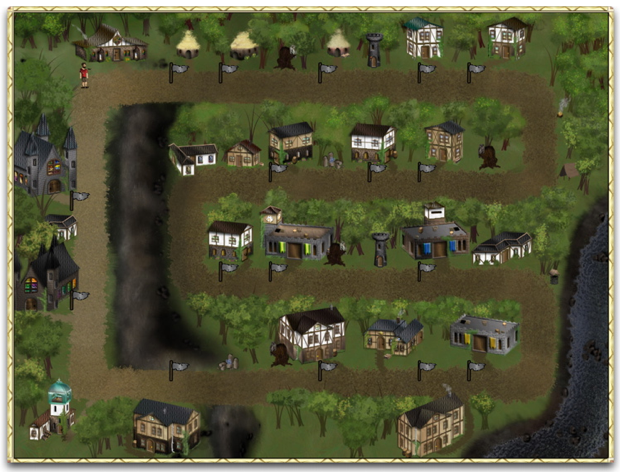The Defense of Hidgeon is a web-based board game developed to teach research skills to incoming students at the University of Michigan. It is profiled in the article "The Effectiveness of a Web-based Board Game for Teaching Undergraduate Students Information Literacy Concepts and Skill," in D-Lib magazine.
The article discusses the effectiveness of the University of Michigan program to teach undergraduates basic information literacy skills using an web based board game, the Defense of Hidgeon. The research team tested a class of students to play the game, with monetary rewards and interviewed them to determine their experiences, ending with 3 suggestions for improvement.
Incoming students need to know how to conduct research in today's information rich environment. While many may be familiar with online search methods, many perform poorly when faced with the prospect of researching scholarly journals and evaluating sources of information.
In this context, the prototype team developed a game would teach incoming students these concepts. The game uses a general to specific model of research. Players imagine themselves in the 14th century at the height of the Black Plague. Students play on teams navigating around the kingdom researching a solution to the crisis. Students are rewarded for being the richest, fastest, and most efficient team of researchers.
29 students test played the game, and identified several areas for improvement. For example, players could end up in "The Hospital" on several tasks, and due to design limitations, it would often take quite an effort to get out. The bug impeded flow for the players and many were frustrated.
Likewise, the team monitored the players for patterns of activity with the intent to judge the effectiveness of their application. Their data revealed some limitations of The Defense of Hidgeon and led to the following generalizations regarding game design:
1. Game Play That Counts toward Students' Grades in the Course - students need to see the correlation between participation and results
2. Game Play That Gives Players Mastery Over One Key Concept at a Time - students need to focus one message and have all game elements reinforce it.
3. A Payoff for Leaving the Computer Behind - there must be compelling reasons to motivate students to leave the "game world" to do tasks in the physical world.
The authors maintain that any game not acknowledging these factors will be ineffective.

No comments:
Post a Comment